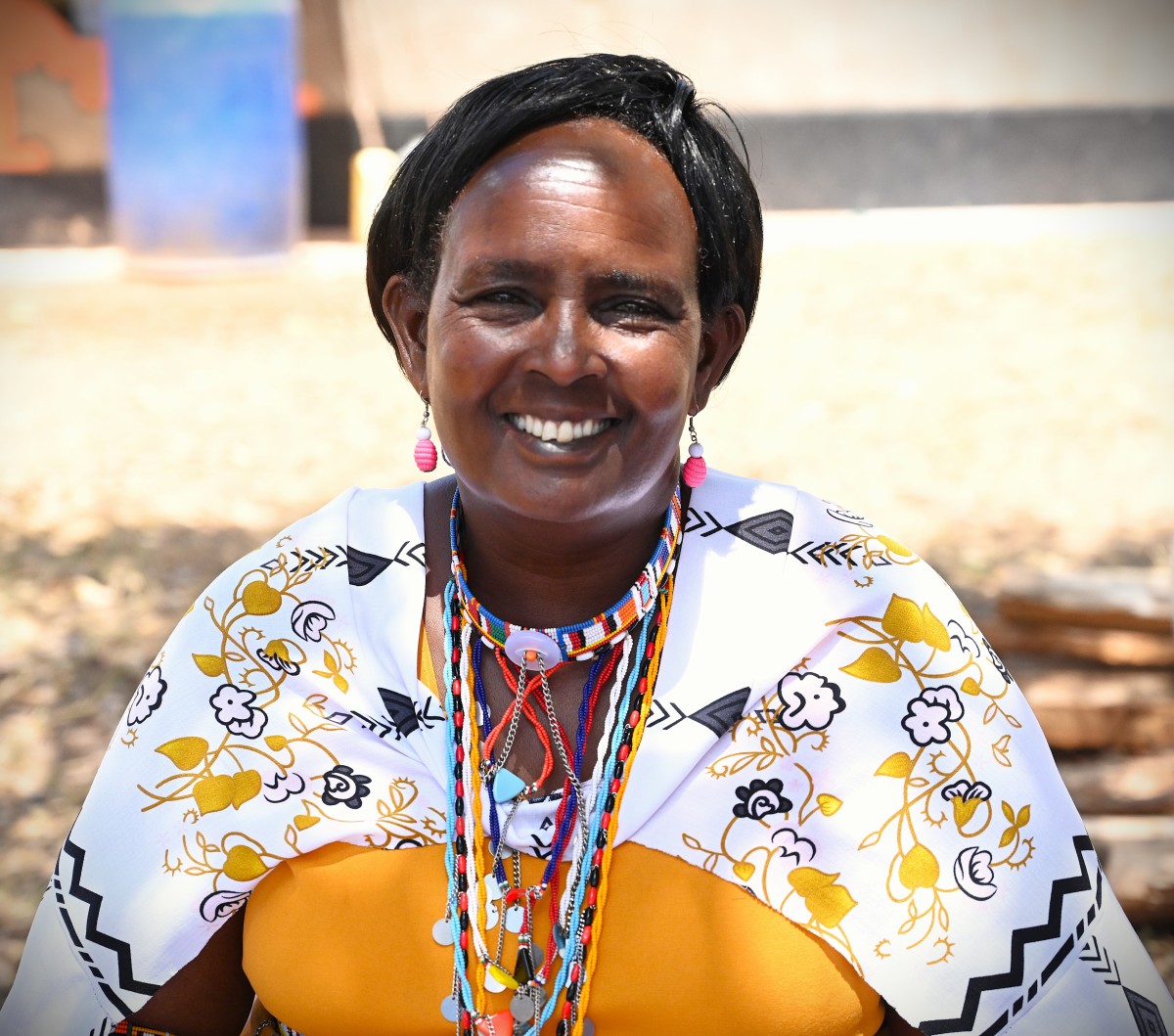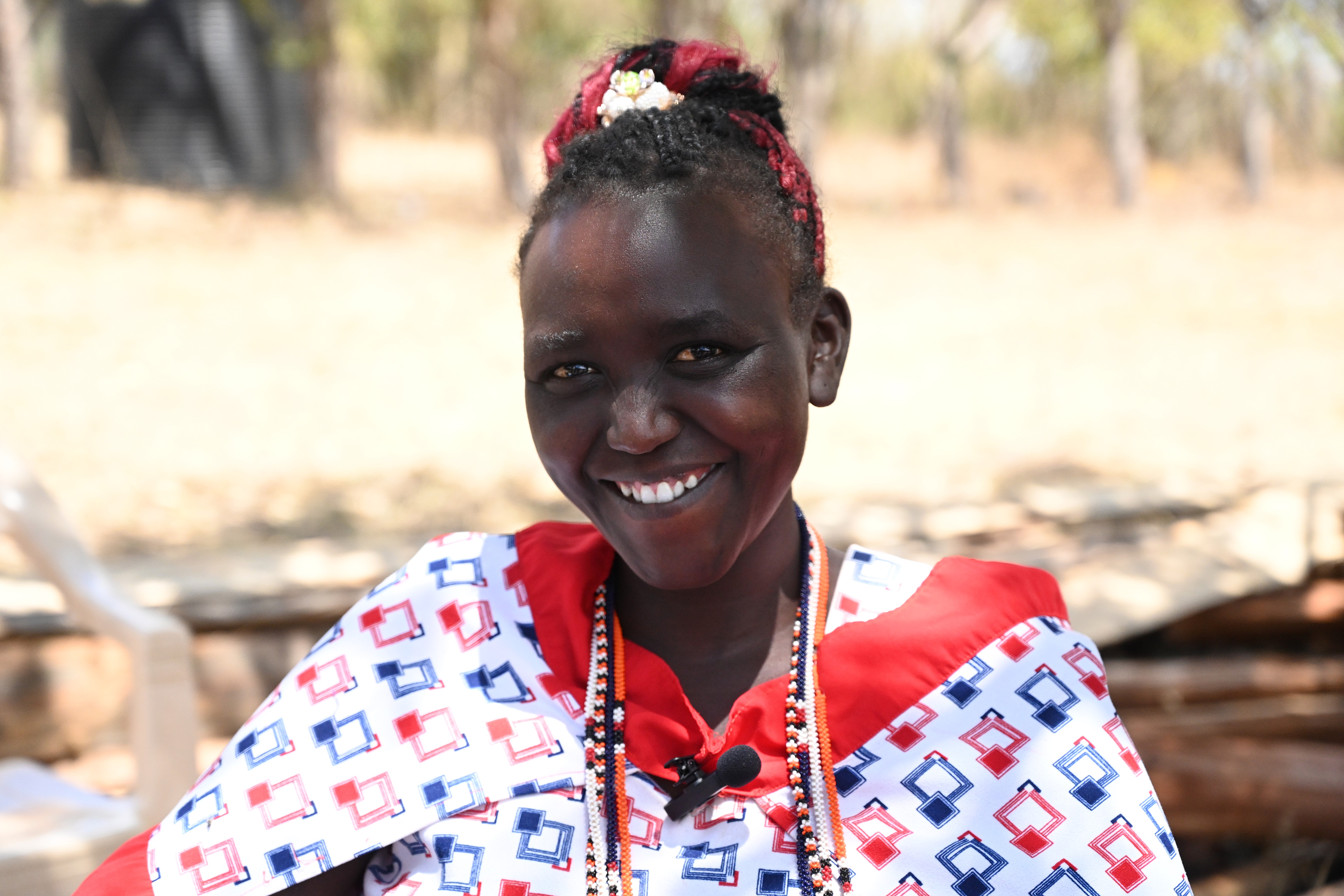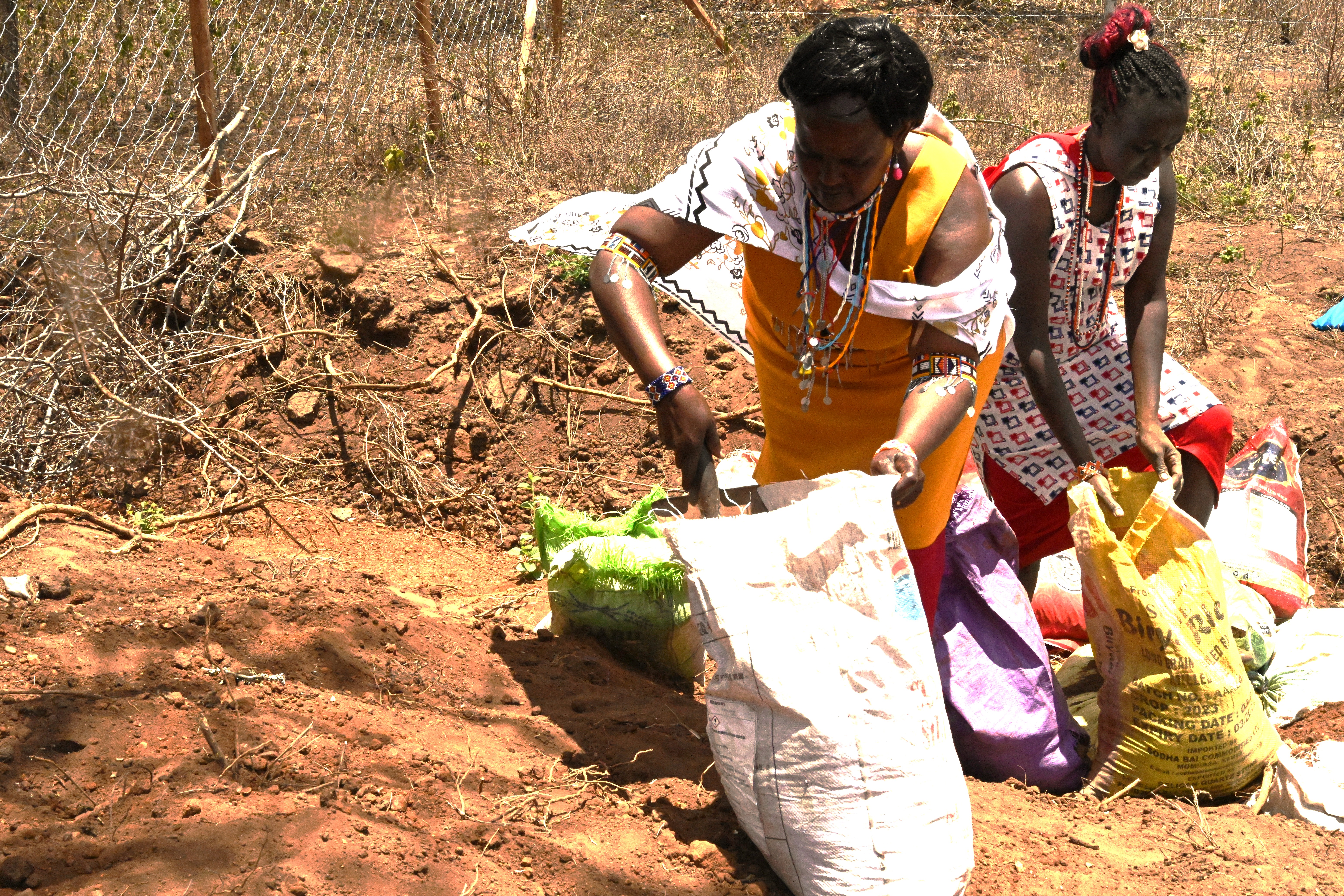Earth Pan gives Kalioki women new courage: 'Now we can help other women solve water problems.'
Walking for hours every day in the heat on a road where dangerous animals such as snakes lurk: In Kalioki, a village in Kajiado County in Kenya, having water close to home is not the norm. Therefore, women and girls sometimes walk for hours through the arid landscape to the nearest water point.
So when the women of the Miton women's group heard that a women's group in a nearby village had received a grant from Simavi's Water Justice Fund to tackle their water problems, they became inspired to do the same.
A dangerous task
Esther Kelempu is 55 and a farmer. She keeps livestock and has a vegetable garden to grow vegetables for her family. In addition to her work, she is out every day from early in the morning until late in the afternoon to fetch water: 'The nearest river is 5 kilometers away. On the way, I have to watch out for dangerous animals, including poisonous snakes. The amount of water I can carry is only enough for one day. So I have no choice but to do it every day.’
In Kajiado it has not rained for six months during the dry season, but even during the rainy season, the community suffers from water shortages. The infrastructure to collect and use rainwater is lacking. As a result, women and girls have to make a daily journey of several kilometers to the nearest water point. At the water points, the cattle are often given priority to drink, so the women must wait for hours for their turn.

Women’s groups as inspiration
The problem of water shortage is exacerbated by climate change. More and more water sources are drying up, making it increasingly difficult to collect water. That is why the women of Kalioki decided to take action; they founded the Miton women’s group to save money together and discuss solutions. Lilian Kirisiah (29) is the secretary of the women’s group. ‘Every time we meet, we save 20 Kenyan Shillings (14 euro cents) per member to invest in improving our living conditions.’
Lilian got the inspiration for this from the Engape women’s group from a nearby village. ‘We heard that women’s groups in other places were already achieving a lot. We met the Engape women’s group, who shared a lot of knowledge and advice for our water problems with us. We also heard from them about the Water Justice Fund. They put us in touch with Neighbours Initiative Alliance (Simavi’s Partner in Kenya, ed.). When they heard about our water problems, they asked us to apply for a grant.’

Rainwater all year round
The women of the Miton women’s group knew what they wanted to use the WJF grant for. During the wet rainy season, a lot of groundwater remains in their ground that is not drained, but was also not previously collected. Constructing an earth pan could therefore solve two problems: During the rainy season, it would collect excess water, preventing flooding. At the same time, the rainwater collected during the wet season can be used as drinking water for the entire community for the rest of the year.
‘This traditional way of collecting water means that we no longer have to walk so far, but it is also a way to use excess water to cultivate the land.’ Esther can also use the water to expand her vegetable garden. Her family can eat from the extra crops, but she can also sell them. ‘Thanks to this earth pan, we can feed the entire community.’

Together with the entire village
Together with the help of the Engape women’s group, who gave them tips and advice on how to apply, the women of the Miton women’s group managed to get a grant from the Water Justice Fund. The amount of 446.000 Kenyan shillings (approximately 3.170 euros) was enough to get the whole village to work together.
‘The amount we received from the Water Justice Fund not only gave us the opportunity but also the motivation and self-confidence to get to work’, says Lilian. ‘Our husbands were also enthusiastic. They gave us land to construct the earth pan, and they helped us dig and plant crops.’
Esther also notices that the support from the Water Justice Fund gives her self-confidence. ‘Our families are proud of us for solving this huge problem. It gives us motivation to work hard to tackle all our water problems. We are also now getting questions from other women’s groups about how we solved this issue. I am happy that I can now help them with ideas and tips. I hope that our story will inspire other women’s groups to get started too.’


